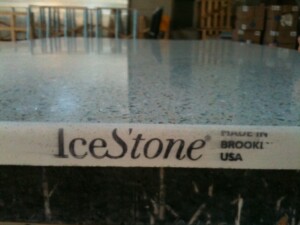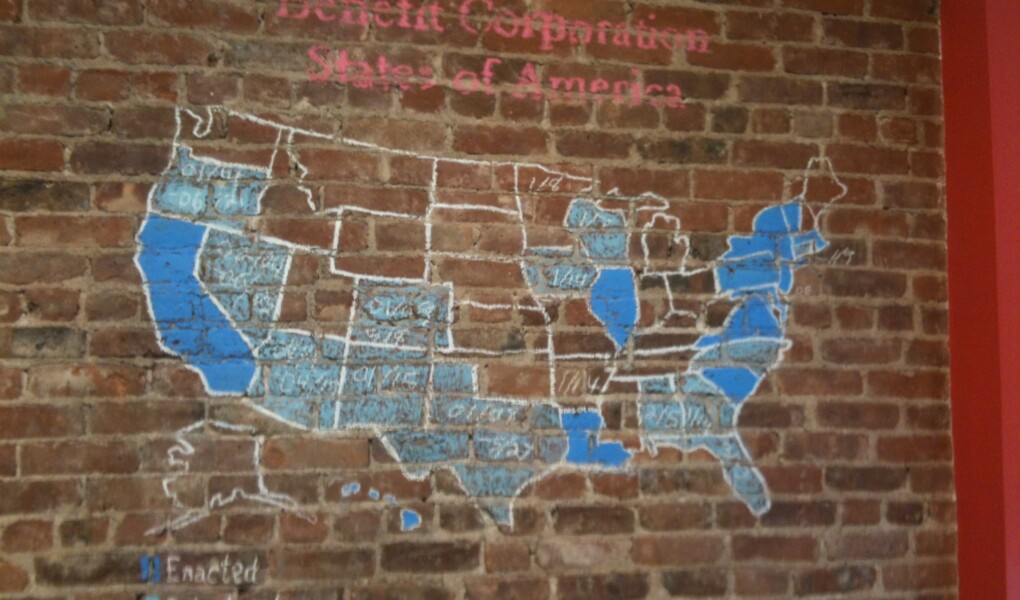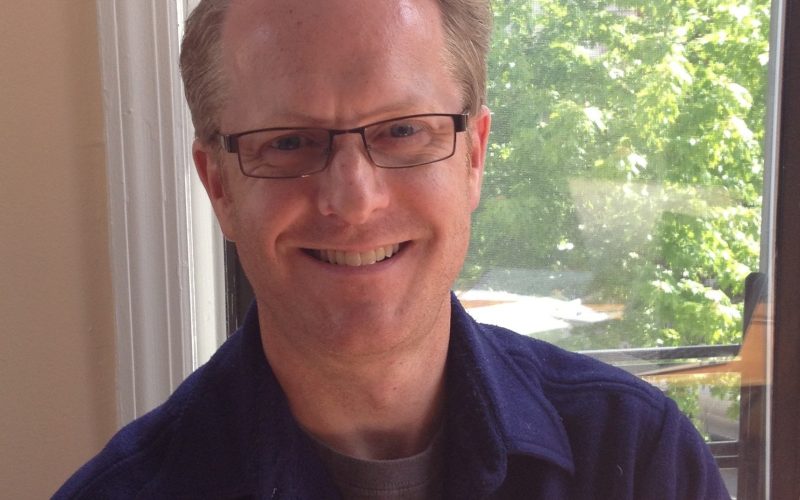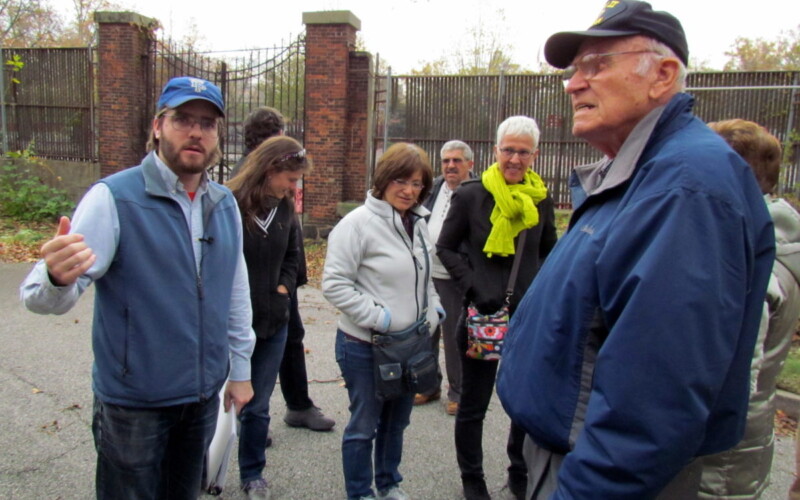Today, many of the products we buy are slapped with a dizzying array of certification labels. You’ve probably seen the USDA certification attached to organic food products, or the Fair Trade label on coffee. Sustainably-harvested wood has the Forest Stewardship Council’s FSC certification system, and Cradle to Cradle certification covers everything from raw materials and industrial products to consumer goods and personal care products. And if you’ve been on a tour of the Brooklyn Navy Yard, you know about the US Green Building Council’s Leadership in Environmental and Energy Design (LEED) rating system and seen beautiful examples of LEED buildings in the Yard, including Building 92, the Perry Building, and even the NYPD Brooklyn tow pound, among others. Many industries across the world are waking up to the need for stronger ecological and social standards, and third-party certification programs help consumers to navigate the claims of the product, building, or manufacturer in question.
So, if you want to buy a product that meets certain environmental criteria, you’ve got a decent number of guidelines and options. But how do you know if these companies are treating their employees well, or offering child care, paid maternity leave, or employee corporate ownership opportunities? How do you know whether they source materials locally? How can you assess their corporate behavior in addition to what they produce? Making a sustainable product does not guarantee, across the board, that you’re a fair and equitable employer or corporate citizen, and certainly we can all fall victim to so-called “greenwash” marketing, when companies tout superficial, misleading, or even false credentials for social and environmental responsibility.

Earlier this year, Turnstile Tours underwent a rigorous review of our social and environmental performance (you can read our complete Benefit Report), but before that even began, we spent months researching certification standards to find the one that best fit our mission and our business. As a New York State-registered Benefit Corporation, we are required to conduct an annual review using a third-party standard, though the law does not specify which one or ones companies must use.
Ultimately, we settled on the B Impact Assessment, a standard utilized by so-called “B Corporations” (not to be confused with “Benefit Corporations” – the former is an independent certification achieved by companies around the world, while the latter is a legal incorporation status currently available in 20 US states). B Corporations, also called B-Corps, are certified by the non-profit B-Lab to meet “rigorous standards of social and environmental performance, accountability, and transparency.” B-Lab assesses not only the products, but also the practices and policies of the company itself. As Nathan Gilbert, B-Lab Associate for International Development, says, B-Lab “measures what matters” and seeks to find companies that are interested in becoming “the best for the world, not the best in the world.”
We had the opportunity earlier this year to visit the B-Lab office in Manhattan. The atmosphere there gives the feeling that B-Lab certification is a way for excellent, innovative companies to celebrate, highlight, and improve the ecological strategies and equitable standards that they already employ. B-Lab certification provides an incentive-through-recognition program to encourage the maintenance and improvement of these goals. There is no sense that B-Lab acts as a litigious watchdog agency, whipping companies into shape from behind. What’s interesting about this model is that the market-changing strategies – the innovative ways B-Corps find to better serve the world in their unique commercial niche – come as much from the community of companies as from a B-Lab. It’s not B-Lab who teaches and the B-corps who listen; rather, there is a fluid sense of results-driven symbiotic evolution, where leadership comes from all angles and individual competition is only valued where it encourages mutual success. This is a good sign that B-Lab is doing something right.
There are currently over 700 companies certified by B-Lab across 10 industries in 24 countries. Brooklyn is home to fifteen of them covering an impressive range of interests – though Turnstile Tours uses B-Lab’s standards and worked with their team on our assessment (and passed with flying colors), we are not yet a certified B Corporation. We hope to join these ranks in early 2014, which include companies like award-winning branding and corporate identity firm BBMG; Etsy, the online micro-business mecca offering unique handmade goods from over 800,000 artisans from nearly every country in the world; pioneering health insurance providers Freelancers Insurance; Sea to Table connects fisherman directly with chefs; and Susty Party will help you plan a green event.

We interact with many B Corporations in the spaces where we give tours. For example, Uncommon Goods, an online retailer that works with artists and craftspeople to develop and sell unique products hand made in the US, is based out of the Brooklyn Army Terminal, and its co-founder Dave Bolotsky has been instrumental in pushing for legal recognition for Benefit Corporations. The Brooklyn Navy Yard boasts at least two B-Corps: recycled-glass countertop manufacturer IceStone, and EcoLogic Solutions, which makes environmentally-friendly, high-quality, and cost-effective cleaning products and technologies for schools, hospitals, offices, hotels and other institutional applications (here’s a complete list of Brooklyn B-Corps, which, by the way, would be a great name for a basketball team).
During our company’s own evaluation process, I’ve had many opportunities to attend B-Corp events, and I have been struck by the inspiration and inclusive enthusiasm pouring out of everyone. I’m no stranger to the ecological sustainability conference crowd – I have personally dished out the enthusiastic hard-sell attitude of champion “ecothusiasts” and social activists. And while I’m full of respect for this kind of ideological tenacity which has characterized social change movements since the 1960s, it can result in a kind of tunnel vision or cultural narrowcasting when it comes to defining what kind of industries, products and services can, or indeed should, be part of the eco/socio-sustainability club. I’ve been impressed to find that the atmosphere and ethos of the B-Lab community moves beyond this limitation and is inclusive, positive and open to all comers, and the resulting diversity of certified B-Corporations suggests that they’re onto something very, very good.
B-Lab has created a brilliant hybrid ecological, economic and social certification system, one that can engage a wide range of industries into one forward-looking community with a common language and goal: leveraging the capacity of private enterprise for the greater public and environmental good. In the words of B-Lab co-founder Jay Cohen Gilbert, B-Corporations are “repurposing private enterprise to create public benefit, not just private wealth,” and in doing so, they are redefining success in business.
Want to learn more about B-Lab and B Corporations? Join our sustainability bike tour series at the Brooklyn Navy Yard, including our Sustainable Architecture & Industry Tour (next on September 14 and October 5) and the Urban Ecology Tour (September 22 and October 27), which are offered by Turnstile Tours in partnership with the Brooklyn Navy Yard Center at BLDG 92 and the Brooklyn Greenway Initiative (see the full schedule and purchase tickets). These experiences are also available as private group tours by bus or bicycle year-round – please contact us for more information or to schedule a tour. All tours begin and end at the Brooklyn Navy Yard Center at BLDG 92, which offers free admission to three floors of exhibitions on the yard’s past, present, and future, the Ted & Honey rooftop café, and a host of great special events and programs.
This post was authored by Doug Chapman, Head of Sustainability Programming at Turnstile Tours.
Read Doug’s post about IceStone, a green manufacturer at the Brooklyn Navy Yard
See Doug interviewed on News 12 Brooklyn about the Urban Ecology Tour at the Brooklyn Navy Yard




